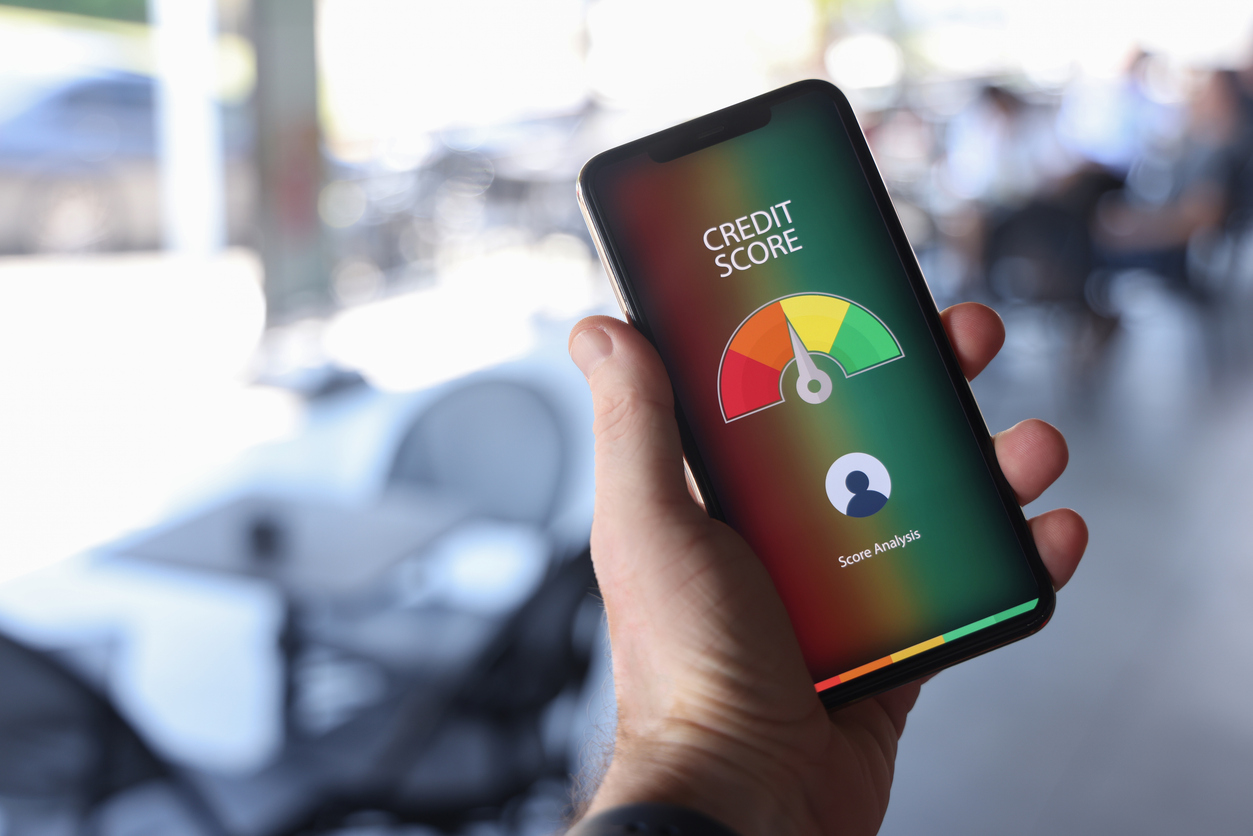
Key takeaways
-
Home equity lenders consider applicants who have established more home equity as less risky. The reason is that most – but not all – home equity products require the homeowner to use the property as collateral.
-
Applying for a home equity loan or home equity line of credit is like applying for your first mortgage. You’ll need to factor in additional costs like closing costs, origination fees, application fees and monthly interest.
-
Before applying for a home equity loan or home equity line of credit, it can pay to work on improving your credit profile by paying down credit card balances, keeping your credit utilization low and varying the types of accounts you use.
A person’s credit score fluctuates throughout their financial life. When times are good, you may be able to maintain good credit. But during difficult financial periods, actions you take to get by may negatively affect your credit health for the long haul.
Even with bad credit, you may be able to access your home’s equity. After all, your home is probably your largest asset and represents a significant portion of your net worth. One way to mitigate bad credit is to use your home as collateral, because lenders may view you as less risky.
A poor credit score doesn’t mean “game over”
Most homeowners finance their homes through a primary mortgage. To establish home equity, you must pay down your mortgage principal, and/or reap the benefits of your home rising significantly in vale. The equity is the difference between the market value of your home and the balance of what you owe on it.
To access your home equity through a loan, your score will be an important factors. If you have bad credit, though, don’t automatically write off your ability to access home equity. One or more of the following options may work for your situation.
Home equity loan
A home equity loan most resembles your primary mortgage.
Most lenders will cap the maximum amount at 80% to 85% of your home equity. So if you have a mortgage balance of $100,000, and your home’s market value is $300,000, you would have $200,000 of equity. Depending on the lender, you could access $160,000-170,000.
As with any financial product, the worse your credit, the worse your loan’s terms may be. If you have a low score, a lender may require a higher amount of equity to secure a smaller loan and impose a less-favorable interest rate.

A home equity loan will also function like a mortgage in that the total debt owed on your home will increase. You need to be confident you can make the payments, even in the event of unforeseen financial conditions (e.g., a layoff or medical bills).
Like your primary mortgage, falling behind on your payment could result in foreclosure by your home equity lender.
Home equity line of credit
You also may be able to qualify for a home equity line of credit (HELOC). Compared with the home equity loan, a HELOC works more like a credit card – it’s a revolving line of credit tied to the value of your home.
While a home equity loan provides a one-time lump-sum payment, with a HELOC, you have a set period during which funds are available. Once this “draw” period ends (usually after 10 or 15 years), you must repay the loan in monthly payments, usually over about 20 years.
You also may be able to qualify for a home equity line of credit (HELOC). Compared with the home equity loan, a HELOC works more like a credit card – it’s a revolving line of credit tied to the value of your home.
While a home equity loan provides a one-time lump-sum payment, with a HELOC, you have a set period during which funds are available. Once this “draw” period ends (usually after 10 or 15 years), you must repay the loan in monthly payments, usually over about 20 years.
Even if you qualify for a HELOC, this type of loan may be riskier than a home equity loan because:
-
It has an adjustable interest rate, so it can go up in an inflationary economy
-
The repayment period may end with a large balloon payment
-
Maintenance, membership or closing fees can be high
Home equity agreement
The home equity agreement (HEA) may be the most plausible option for homeowners with bad credit. Unlike a home equity loan and HELOC, a home equity agreement does not require you to take on more debt.
Instead, the HEA provider gives you a lump-sum payment for a percentage of your home’s future value. Because it is not a loan, there are no monthly payments or interest fees with an HEA. You end the agreement by refinancing, selling your property, or buying back your equity.
The application process and requirements are generally much simpler than those of a home equity loan or home equity line of credit.
Alternative options
Other options for accessing home equity with bad credit include a cash-out refinance and a reverse mortgage.

Here’s how those work:
-
Cash-out refinance: Through certain government-approved programs, you may be able to access your home equity by obtaining a new mortgage. With this new mortgage, you borrow more than you owe and use the extra money for your intended purposes, such as paying off debt, home renovations or any other need.
-
Reverse mortgage: If you’re a homeowner over age 62, you may qualify for a reverse mortgage. This option allows you to receive a monthly payment from the lender rather than a monthly bill. The total loan amount becomes due when you sell your home or move out for more than a year. When you have a low credit score, the home equity conversion reverse mortgage may be an option to check into.
Getting approved
If you’re looking to access your home equity through any type of loan product, the lender’s requirements may vary from one provider to another, and depending on the product. In general, requirements include:
-
At least 15% to 20% home equity
-
A loan-to-value ratio within the provider’s limit; the greater the home value as compared to the loan, the less risky you are to the lender
-
A debt-to-income ratio lower than 43%; the more ability you have to pay your monthly bills, the more likely the lender is to provide you with funds
Access home equity with Unlock Technologies
Owning a home means you have a large valuable asset – but it doesn’t necessarily mean you have a healthy credit score. Even with a low credit score, access to home equity could still be possible. With Unlock Technologies, you may be able to tap into your home’s equity with a home equity agreement.
Contact us today to see if an HEA from Unlock Technologies is right for you.
The blog articles published by Unlock Technologies are available for general informational purposes only. They are not legal or financial advice, and should not be used as a substitute for legal or financial advice from a licensed attorney, tax, or financial professional. Unlock does not endorse and is not responsible for any content, links, privacy policy, or security policy of any linked third-party websites.”


